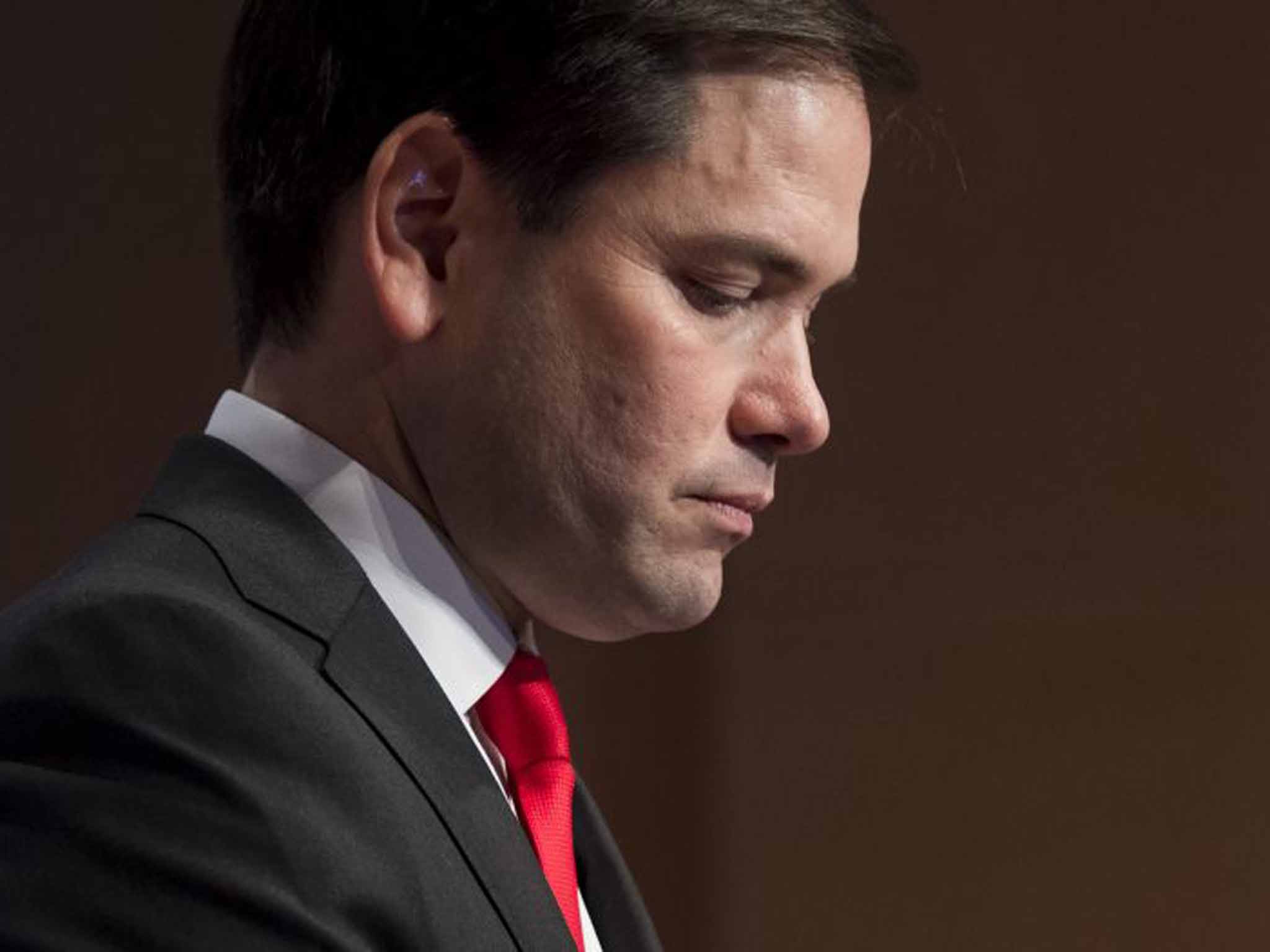Marco Rubio wanted to take sex workers’ money and give it to whistleblowers
The Republican candidate had an unusual idea back in 2006 which made sex workers out to be victims and criminals at the same time

Republican candidate Marco Rubio once proposed using sex workers’ money as cash rewards for whistleblowers.
As reported in The Daily Beast, Mr Rubio made this proposal as part of his list of “100 Innovative Ideas for Florida’s Future” after he became speaker of the Florida House in 2006.
The 43rd idea on the list was specifically to target sex workers, or as he claimed, to assist women and young girls “to escape prostitution”.
“Whistleblower status should be afforded to everyone who reports these crimes, even if they are involved in the act,” Rubio’s book read. “As an incentive for reporting the illegal activities, whistleblowers should also receive half the proceeds from any forfeiture actions brought in the case.”
He also proposed to put those who use websites to promote illegal sexual activities in a “registry”, to “discourage people from patronizing businesses and websites that promote criminal activity.”
Mr Rubio also called for an advertising campaign to shame those who “promote illicit sex” in the state.
The Daily Beast reported that the ideas passed in the Florida House but stalled in the Senate.
Crystal DeBoise, managing director of the New York-based Sex Workers Project, told The Independent that the proposal by Mr Rubio was “bizarre”, and that encouraging arrests of sex workers can lead to “dangerous outcomes”.
“Everyone claims they want to help sex workers but the question is about politicians’ stated goals versus their actions and the outcomes of those actions,” she said.
“They often claim that sex workers are abused women, but then [Mr Rubio’s] proposal is to take money from these women, which sheds light on how bizarre that proposal is.”
Ms DeBoise said that sex workers, rather than being able to “escape” the trade, often are forced to stay due to the high number of arrests they have on their record, which means they can’t get another job. Arrests with the police have often been abusive, she said.
Talking more generally about Democrats and Republicans, Carol Leigh, a sex worker and director of the Bay Area Sex Worker Advocacy Network, said: “People don’t talk very openly about sex workers unless they are talking about punitive measures or “rescuing victims”.”
She added that there are victims, but not everyone who works as a sex worker is a victim.
Other ideas from Mr Rubio to “transform” state law included lowering property taxes and insurance rates and luring Hollywood to make films in the state.
He claimed on his website, reported by Politifact, that 57 of his 100 ideas were made into law, including laws on “cracking down on gangs and sexual predators”, but the same website reported only 34 of those ideas were made into law.
“I didn't realize it at the time of course, but the seeds for my election to the U.S. Senate in 2010 were planted in the spring of 2007,” Mr Rubio later wrote, according to NBC News.